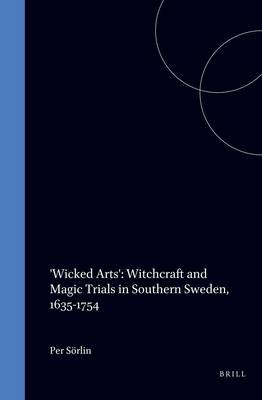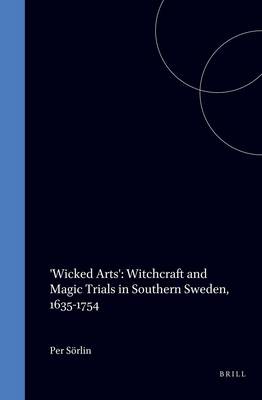
- Afhalen na 1 uur in een winkel met voorraad
- Gratis thuislevering in België vanaf € 30
- Ruim aanbod met 7 miljoen producten
- Afhalen na 1 uur in een winkel met voorraad
- Gratis thuislevering in België vanaf € 30
- Ruim aanbod met 7 miljoen producten
Zoeken
€ 236,95
+ 473 punten
Omschrijving
This study deals with witchcraft and magic in a legal, social and cultural context, with an interpretation based on an extensive body of Swedish sources comprising more than 350 cases involving 880 individuals.
A majority of the trials took place during the 1700's. The prosecution of witches was characterized by leniency resulting only in a few death sentences; a majority of the cases were minor events concerning more often innocuous magic rather than the witches' sabbath or maleficent witchcraft.
By focusing on the few prosecutions of maleficent witchcraft, this study promotes a critical discussion of how social and cultural perceptions of local witchcraft were generated by the interactions in the legal process, providing us with new insights into early modern European witchcraft.
A majority of the trials took place during the 1700's. The prosecution of witches was characterized by leniency resulting only in a few death sentences; a majority of the cases were minor events concerning more often innocuous magic rather than the witches' sabbath or maleficent witchcraft.
By focusing on the few prosecutions of maleficent witchcraft, this study promotes a critical discussion of how social and cultural perceptions of local witchcraft were generated by the interactions in the legal process, providing us with new insights into early modern European witchcraft.
Specificaties
Betrokkenen
- Auteur(s):
- Uitgeverij:
Inhoud
- Aantal bladzijden:
- 240
- Taal:
- Engels
- Reeks:
- Reeksnummer:
- nr. 7
Eigenschappen
- Productcode (EAN):
- 9789004111837
- Verschijningsdatum:
- 26/11/1998
- Uitvoering:
- Hardcover
- Formaat:
- Genaaid
- Afmetingen:
- 164 mm x 244 mm
- Gewicht:
- 598 g

Alleen bij Standaard Boekhandel
+ 473 punten op je klantenkaart van Standaard Boekhandel
Beoordelingen
We publiceren alleen reviews die voldoen aan de voorwaarden voor reviews. Bekijk onze voorwaarden voor reviews.








